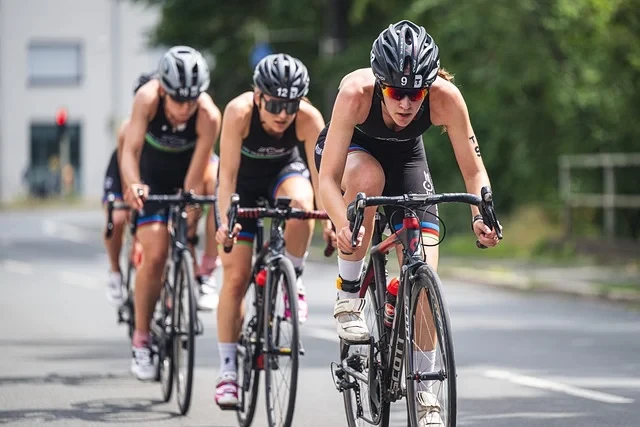Sleep and Recovery - The Ultimate Guide to Optimizing Your Rest
SleepRecoveryHealthPerformance

Learn how to optimize your sleep and recovery for better health, performance, and body composition results.
Sleep and Recovery: The Ultimate Guide to Optimizing Your Rest
Sleep and recovery are crucial components of health, fitness, and performance that are often overlooked. This comprehensive guide will help you optimize your rest for better results.
Understanding Sleep Cycles
Sleep Stages
- Stage 1 (Light Sleep)
- Stage 2 (Deeper Sleep)
- Stage 3 (Deep Sleep)
- REM Sleep
Sleep Architecture
- 90-minute cycles
- 4-6 cycles per night
- Different proportions of stages
- Importance of completion
The Science of Recovery
Types of Recovery
-
Physical Recovery
- Muscle repair
- Tissue regeneration
- Energy restoration
- Hormone balance
-
Mental Recovery
- Neural restoration
- Memory consolidation
- Emotional processing
- Stress reduction
-
Metabolic Recovery
- Glycogen replenishment
- Hormone optimization
- Inflammation reduction
- Immune function
Sleep's Impact on Health and Performance
Physical Performance
- Muscle recovery
- Strength gains
- Endurance capacity
- Reaction time
- Coordination
Mental Performance
- Focus and concentration
- Decision making
- Reaction speed
- Learning ability
- Memory consolidation
Body Composition
- Hormone balance
- Metabolism
- Appetite regulation
- Fat loss
- Muscle preservation
Optimizing Sleep Quality
Environment Optimization
Temperature
- 60-67°F (15-19°C)
- Proper ventilation
- Appropriate bedding
- Temperature regulation
Light
- Complete darkness
- Blackout curtains
- Eye mask if needed
- Red light options
Sound
- White noise options
- Earplugs if needed
- Sound machine
- Quiet environment
Sleep Hygiene Practices
Bedtime Routine
- Consistent schedule
- Wind-down period
- Relaxation practices
- Screen limitations
Daily Habits
- Morning sunlight
- Regular exercise
- Proper nutrition
- Stress management
Recovery Strategies
Active Recovery
- Light movement
- Mobility work
- Walking
- Swimming
- Yoga
Passive Recovery
- Sleep
- Meditation
- Float tanks
- Massage
- Relaxation techniques
Recovery Tools
- Foam rolling
- Compression gear
- Ice/heat therapy
- Massage guns
- Recovery boots
Nutrition for Better Sleep
Foods That Promote Sleep
-
Tryptophan-rich foods
- Turkey
- Chicken
- Eggs
- Dairy
-
Magnesium-rich foods
- Nuts
- Seeds
- Leafy greens
- Bananas
-
Complex carbohydrates
- Oats
- Sweet potatoes
- Brown rice
- Quinoa
Timing Considerations
- Last meal 2-3 hours before bed
- Light snack if needed
- Hydration balance
- Caffeine cutoff time
Exercise and Sleep
Timing Your Workouts
- Morning benefits
- Evening considerations
- Post-workout recovery
- Training intensity
Recovery Between Sessions
- Adequate rest periods
- Sleep quality
- Nutrition timing
- Stress management
- Active recovery
Managing Sleep Disruptions
Common Issues
- Insomnia
- Sleep apnea
- Restless legs
- Night waking
- Poor sleep quality
Solutions
- Sleep hygiene
- Medical evaluation
- Lifestyle changes
- Stress management
- Professional help
Travel and Sleep
Jet Lag Management
- Pre-travel adjustment
- Flight timing
- Light exposure
- Meal timing
- Activity planning
Hotel Sleep Optimization
- Room temperature
- Darkness level
- Noise control
- Comfort items
- Schedule maintenance
Technology and Sleep
Blue Light Management
- Screen filters
- Night mode
- Evening limitations
- Alternative activities
Sleep Tracking
- Wearable devices
- Sleep apps
- Data interpretation
- Trend analysis
Recovery for Athletes
Training Recovery
- Between sessions
- Weekly planning
- Deload periods
- Season planning
Competition Recovery
- Pre-event preparation
- Post-event protocols
- Travel considerations
- Performance maintenance
Lifestyle Integration
Work-Life Balance
- Schedule optimization
- Stress management
- Time management
- Priority setting
Social Considerations
- Social commitments
- Family obligations
- Special occasions
- Flexible planning
Measuring Progress
Sleep Metrics
- Total sleep time
- Sleep quality
- Wake episodes
- Recovery scores
Performance Markers
- Energy levels
- Workout performance
- Mental clarity
- Recovery rate
Long-term Success
Habit Formation
- Consistent routine
- Environmental setup
- Behavior change
- Support system
Maintenance Strategies
- Regular assessment
- Adjustment as needed
- Continued education
- Professional support
Conclusion
Optimal sleep and recovery require:
- Consistent practices
- Environmental optimization
- Lifestyle balance
- Regular monitoring
- Individual adjustment
Focus on:
- Quality over quantity
- Regular routine
- Stress management
- Recovery prioritization
- Continuous improvement
Remember that good sleep is essential for:
- Health optimization
- Performance enhancement
- Body composition
- Mental well-being
- Overall quality of life

